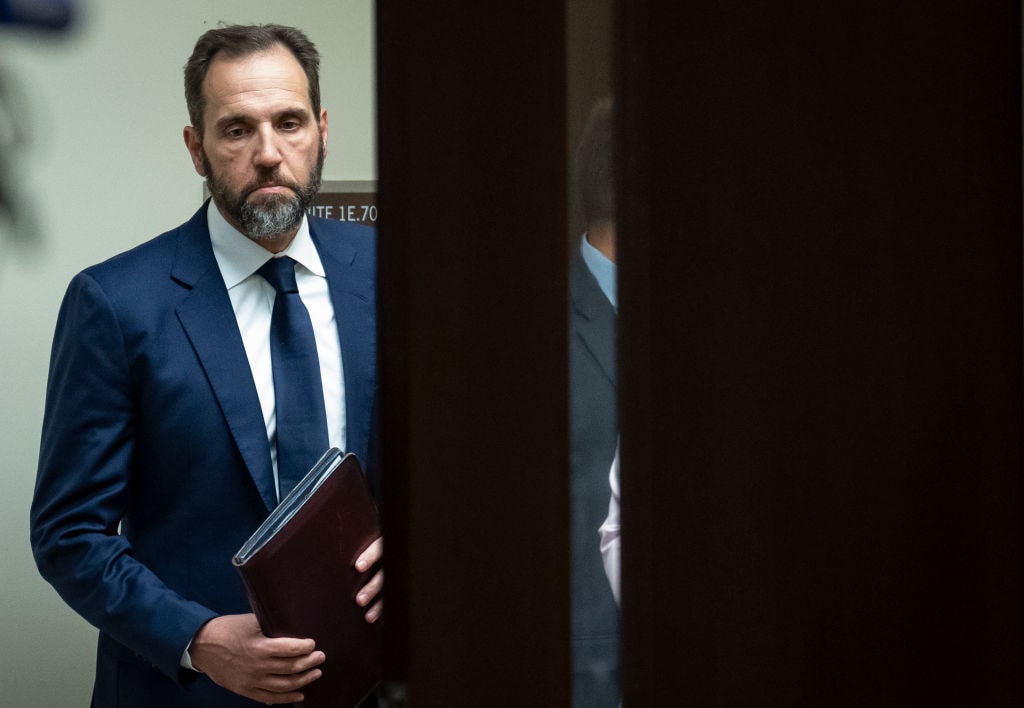Justices spoke volumes with their silence.
The United States Supreme Court gave Donald Trump an early Christmas gift. Friday afternoon, December 22, the High Court refused to grant special counsel Jack Smith’s emergency petition to fast-track an appellate issue regarding Trump’s federal criminal liability. It would have helped guarantee that Trump would face trial in early 2024 if granted. The Supreme Court issued its ruling without comment, and now the case will return to a DC Circuit Court of Appeals tribunal to be heard in early January.
“The petition for a writ of certiorari before judgment is denied.”
It was a one-sentence order that conveyed more by what it didn’t say than by what it did. No member of the Supreme Court contradicted the order or stated they agreed with the special counsel’s arguments. When the Supreme Court declines to take a case, justices may, and often do, announce that they disagree with their colleagues and write about why. None of the Court’s liberal bloc did so here, which should give Mr. Smith some pause.
Trump Catches a Break
 Mr. Trump posted to social media the court “unanimously” rejected “Deranged Jack Smith’s desperate attempt to short circuit our Great Constitution.” This might not be true. We have no idea what the vote was on taking up the Smith petition. We only know that fewer than four justices agreed to take the case and that no one wanted to state that they voted to hear it publicly. That says quite a bit, however.
Mr. Trump posted to social media the court “unanimously” rejected “Deranged Jack Smith’s desperate attempt to short circuit our Great Constitution.” This might not be true. We have no idea what the vote was on taking up the Smith petition. We only know that fewer than four justices agreed to take the case and that no one wanted to state that they voted to hear it publicly. That says quite a bit, however.
For example, on December 11, the Court denied review in a case from Washington state concerning counselors and minors and questions of gender transitioning. Justice Brett Kavanaugh let it be known in the order that he would have granted the petition for review. Justice Clarence Thomas wrote a five-page essay on why the Court should have taken the case, and Justice Samuel Alito gave it two pages. Less than a month earlier, on November 13, Justices Sonia Sotomayor and Elena Kagan signed on to Justice Ketanji Brown Jackson’s eight-page, two-part dissent from their colleague’s denial of a petition for review regarding a prison inmate issue.
Under the Supreme Court’s rules, four justices must agree before a case is heard. That’s called granting certiorari. If fewer than four want to hear the appeal, certiorari is denied. These judges are not shy about voicing their opposition when the majority doesn’t grant a case they think should come before them. Yet Mr. Smith’s petition was emphatic. The Court “must” take the case and resolve the issue immediately! Thus was the thrust and tone of all the filings at the Supreme Court. And it was all for naught.
Trump has asserted he is immune from prosecution for anything deemed an “official act” while he was president. This, he argues, includes his actions at the time of the January 6 riot at the Capitol. Mr. Smith says Trump’s actions and inaction constitute a crime. When Mr. Trump claimed immunity from prosecution, the trial judge, Obama appointee Tanya Chutkan, denied his motion. Trump appealed to the DC Circuit Court of Appeals. This type of appeal, called interlocutory, arrested the trial process until the matter was resolved.
No Help From the Left Bloc
It isn’t a good sign for Mr. Smith that the Supreme Court declined to speed up the process in order to keep the strongly preferred timeline of the Biden administration. Mr. Trump’s trial was scheduled to start on March 4, the day before the Super Tuesday primaries, when 14 states are expected to choose a nominee. Smith wrote to the Court, “… this case requires immediate resolution of the immunity question to permit the trial to occur on an appropriate timetable.” What’s appropriate to Mr. Smith, Judge Chutkan, and the various other Democrat prosecutors and attorneys general seems to coincide with whatever may harm Donald Trump the most politically. The Court’s refusal and silence speak volumes on the matter.

(Photo by Drew Angerer/Getty Images)
The DC Circuit Court of Appeals has been willing to speed up the process for the prosecution. They granted a motion by Mr. Smith to expedite the briefing and scheduling of the appeal, setting arguments for Tuesday, January 9. Three judges will determine the outcome: Karen Henderson, appointed by George H.W. Bush; Michelle Childs, appointed by Joe Biden; and Florence Pan, another Biden appointee. The party that loses before these judges may appeal again to the same Court for what is called en banc review. This is a re-hearing where all the judges in the circuit participate.
The circuit’s rules state cases should be granted this additional review if “the proceeding involves a question of exceptional importance.” This case fits the bill by the special counsels’ own submissions. Mr. Trump may then get another delay as the DC Circuit reviews his case again. Then, the loser at that level may apply for Supreme Court review. Supreme Court round one, however, goes to Trump.

